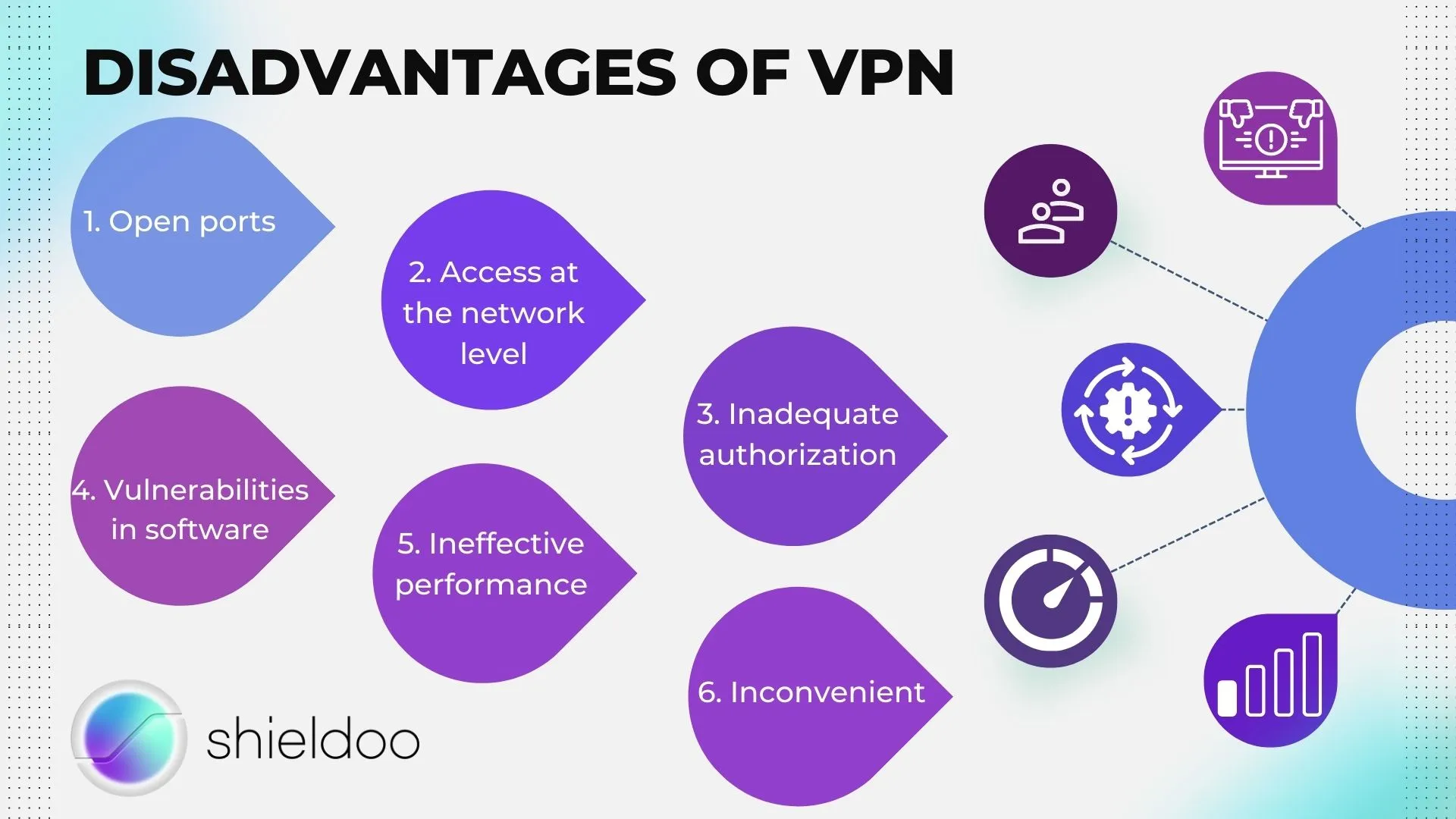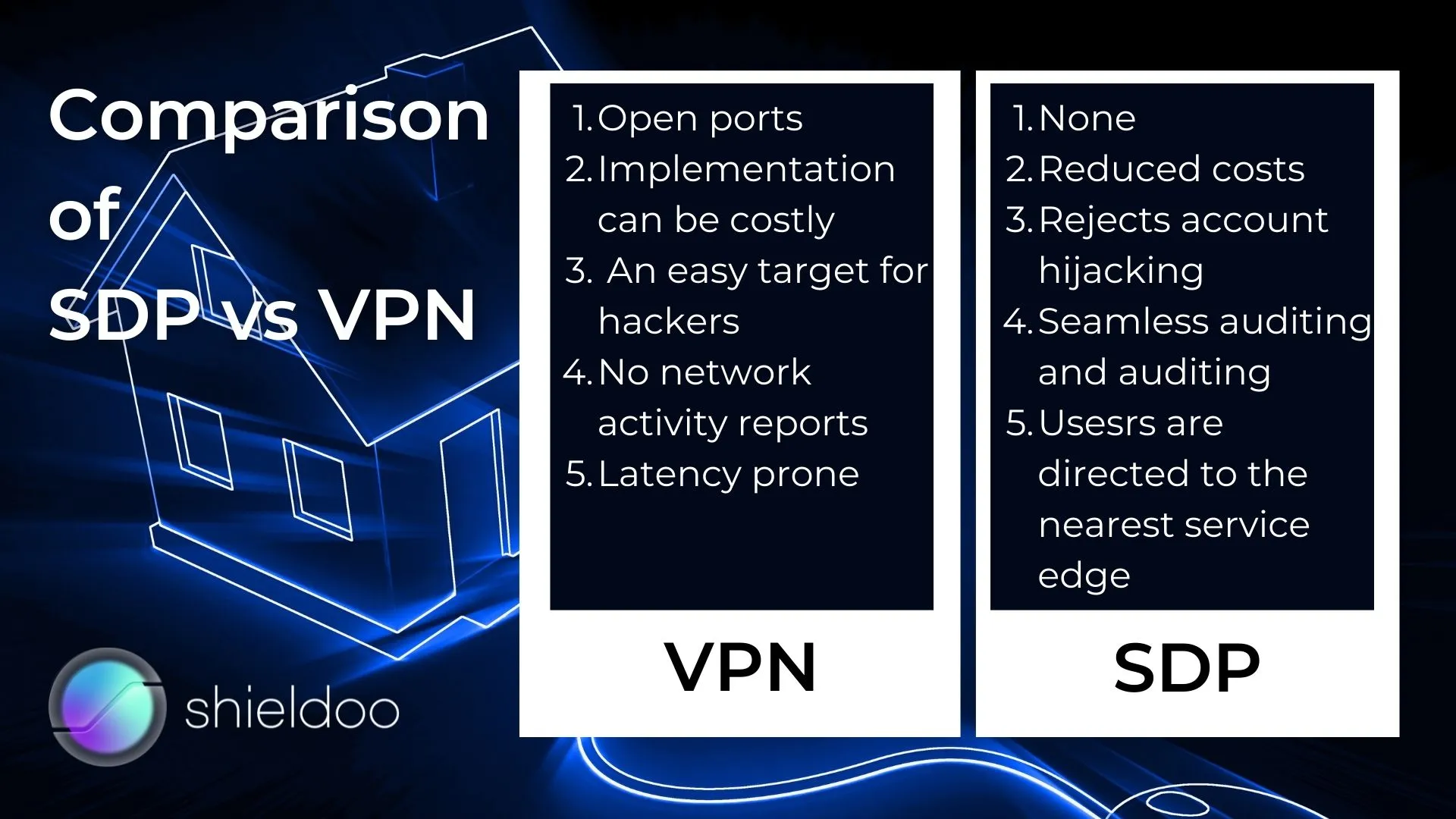VPN is an acronym for Virtual Private Network. It is a network for creating a secure connection or respectively an encrypted "tunnel" between two separate local networks, for example, the one you use at work and the one you use at home. VPN allows you to securely reach resources like a webserver (maybe hosting HR system) or printer located in your office and helps protect confidential business information from being stolen while outside of the office.

A virtual private network is a network connection based on secure virtual tunnels between points that protect users on public networks. Virtual private networks authenticate users outside the network before letting them in through the tunnel. If I use a VPN, my internet provider and third parties will not be able to monitor which websites I have visited or what data I am transmitting and receiving because the source of my data is becoming a VPN server. But regardless, VPNs have too many disadvantages.
Read more in the article VPN vs SDP

Lorem ipsum dolor sit amet, consectetur adipiscing elit. Suspendisse varius enim in eros elementum tristique. Duis cursus, mi quis viverra ornare, eros dolor interdum nulla, ut commodo diam libero vitae erat. Aenean faucibus nibh et justo cursus id rutrum lorem imperdiet. Nunc ut sem vitae risus tristique posuere.
diam libero
The mesh is a collection of nodes, a lighthouse, and an admin center. The user device is a node, a server is a node, cloud stack is a node, LAN access box is a node.




